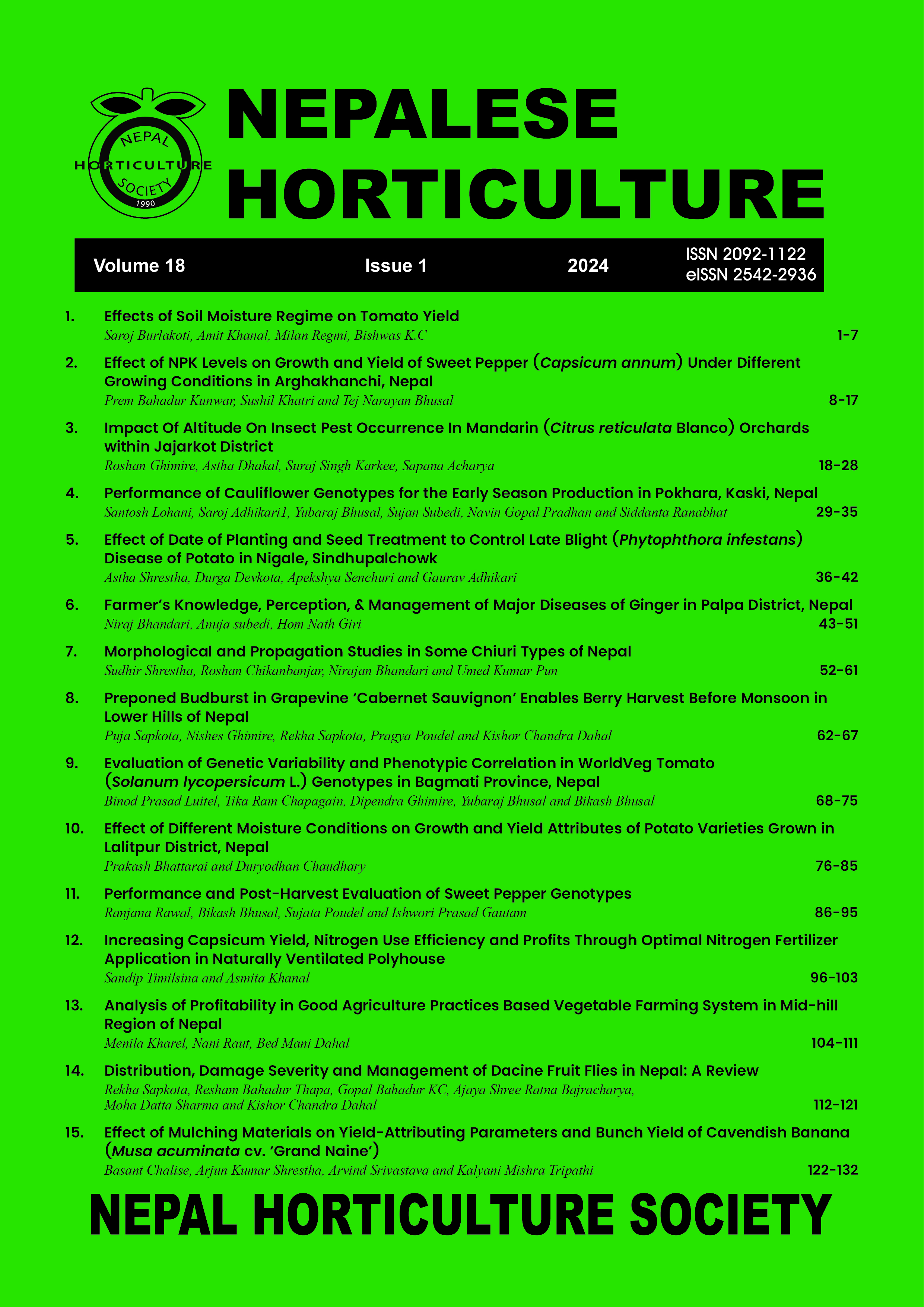Effect of NPK Levels on Growth and Yield of Sweet Pepper (Capsicum Annum) under Different Growing Conditions in Arghakhanchi, Nepal
DOI:
https://doi.org/10.3126/nh.v18i1.72671Keywords:
Open field, Capsicum, Nutrients, Protected condition, Poly-tunnelAbstract
Optimizing fertilization to boost sweet pepper yield is essential for meeting food demands and promoting agricultural sustainability. This field experiment was performed from March to July 2022 in Sandhikharka, Arghankhanchi, to evaluate the effect of NPK levels from inorganic sources on the growth and yield of sweet pepper under different growing conditions. The experiment followed a two-factorial Randomized Complete Block Design (RCBD) with eight treatments: two growing conditions (open field vs. poly-tunnel) and four NPK levels (0 %, 50%, 100%, and 150 % of the recommended dose of NPK), replicated thrice. Results revealed that poly-tunnel had the highest plant height (44 cm), stem base diameter (1.63 cm), number of leaves (169), number of branches (12), number of buds (10), number of flowers (5), number of fruits (6), fruit length (7 cm), fruit diameter (8 cm), average fruit weight (122 g) and yield (8.90 t/ha) as compared to open field conditions. The 50 % more of the recommended NPK had the highest plant height (47 cm), stem diameter (1.67 cm), number of leaves (165), number of branches (12), number of buds (11), number of flowers (6), number of fruits (6), fruit length (7 cm), fruit diameter (8.26 cm), average fruit weight (125 g) and yield (9.68 t/ha). Significant interactions between growing conditions and NPK levels were observed for fruit diameter, average fruit weight, and yield. The study concluded that the recommended NPK dose is optimal for poly-tunnel cultivation, while 150% of the recommended dose is needed for open field conditions.
Downloads
Downloads
Published
How to Cite
Issue
Section
License
Copyright (c) 2024 Nepal Horticulture Society

This work is licensed under a Creative Commons Attribution-NonCommercial 4.0 International License.
© Nepalese Horticultural Society

